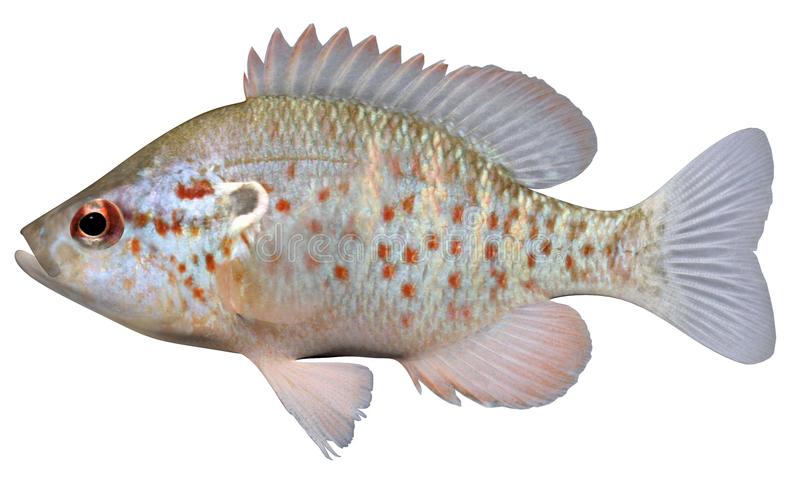ANIMAL: Orangespotted Sunfish Lepomis humilis Type of Animal: Sunfish Habitat: Shallow vegetated backwaters, lakes, rivers, floodplain pools, sandy substrate waters, nearshore shallows, floodplains, streams, beaver ponds, oxbows, sloughs, slow-moving/still creeks, slow-moving/still ponds, quiet vegetated stream backwaters, barrow/borrow pits, quiet vegetated ponds, pool-rootwad backwater/backwater bank snag habitat, channelized pools, silty bays, lake headwaters, tributaries, shallow river margins, silty weed-choked shallow creeks, rocky shallow creeks, silty weed-choked shallow ponds, rocky shallow ponds, rocky lake shallows, silty weed-choked shallow marshes, rocky shallow marshes, rocky shallow backwaters, small bayous, drainage ditches, niche reservoirs, turbid brushy sloughs, turbid brushy ponds, turbid brushy creeks, quiet stream pools Location(s): Found in US from far E Wyoming/far E Colorado/far E New Mexico in W to Georgia in SE & W Pennsylvania in NE. Introduced/invasive in Florida, S Quebec, S Ontario, part of Colorado, parts of Texas, parts of Dakotas, & Idaho-Nevada border. Appearance: Some fish more elongated w/ angled snout while others deeper-bodied w/ blunt snout depending on area/most common prey item, breeding males have orange bellies/fins, silvery green sides w/ orange spots, & blue sheen on side of head, females silvery w/ orange-brown spots on upper sides & much more faded orange, younger fish often mistaken for young of closely related species Food/Diet: Insects, insect larvae, zooplankton, fish, crustaceans Status in Wild: Stable Conservation: Monitoring of important habitat Lifestyle: Found in sizeable schools. Colonial nesters w/ each nest guarded by territorial male. Additional Info: Called: Male Female Young: Fry/Fingerling Group: School Gestation: 3-5 days Life Span: 4-6 years Body Length: Male: 2.5-4 in Female: 1.2-2.5 in Spawn once or twice a year in summer w/ 6-15 eggs released in each spawning sequence & 175-4,700 eggs per season. One of the smallest Lepomis species. Sometimes hybridize w/ closely related sunfish species. Males prepare for spawning by fanning out depressions in shallow water. Nests often contain eggs from multiple females & females lay eggs in many nests. Males guard eggs & newly hatched fry for 1st few days. Fry then leave dad. Males fan eggs, making sure they’re oxygenated/silt-free. These fish fairly tolerant of polluted water. Also called dwarf sunfish, pygmy sunfish, & sunperch. Fun Fact(s): This species is very useful in mosquito control. Unlike many relatives, not popular sportfish due to small size & shier nature. Males make grunting sounds when trying to attract females. Topeka Shiners often spawn near this species because nesting males fan areas around their eggs, exposing suitable spawning sites for this species.
